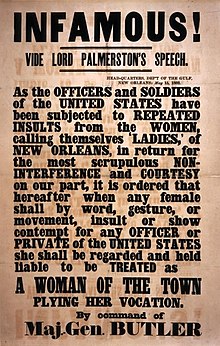Sep 1, 2024
Doctor Jabez Fuller was the son of Isaac Fuller of Middleboro, Massachusetts. Born in 1723, he came to Medfield at the age of 24 in 1747. That same year he married Elizabeth Hilliard. In 1756 the couple bought the homestead of Timothy Metcalf, located in Dingle Dell. Dingle Dell, also known in different times as Dingle Hole, Littlefield’s Hole and Littlefield’s Bottom, lies along West Street around the intersection of West Mill Street (today, the area around the American Legion to Wills Hardware). Dr. Fuller was one of two doctors servicing Medfield at the time, the other being Dr. James Gerauld. Dr. Fuller was one of Medfield’s doctors for 34 years, until his death in 1781.
Two of Dr. and Mrs. Fuller’s nine children, John and Jabez, served in the American Revolutionary War. Jabez, also a doctor, was with Captain Sabin Mann’s Medfield Militia. In 1776 they were sent to New York to reinforce the Continental Army. He was also with Captain Mann’s Medfield Militia in 1777, marching to Rhode Island and being stationed around the Rhode Island town of Bristol.
Jabez’s brother, John, responded to the Lexington Alarm during the attack on Lexington and Concord on April 19, 1775. Under the command of Captain Ephraim Chenery, the Medfield Militia responded, arriving in Lexington just hours after the British had retreated back into the confines of Boston. Fuller stayed on duty for the siege of Boston, some eight months, taking part in the victory over the British at Dorchester Heights and the British evacuation of Boston on March 17, 1776.
The siege of Boston ended when the Continental Army, under the command of George Washington, fortified Dorchester Heights in early March 1776 with cannons captured at Fort Ticonderoga in New York. British General William Howe, whose garrison and navy were threatened by these positions, was forced to decide whether to attack or retreat.
To prevent what could have been a repeat of the Battle of Bunker Hill, Howe decided to retreat, withdrawing from Boston to Nova Scotia on March 17, 1776. The British evacuation was Washington’s first victory of the war. It was also a huge morale boost for the Thirteen Colonies.
A victorious but worn John Fuller returned to Medfield after the British evacuation. He later marched to Rhode Island under Captain Sabin Mann’s Medfield Militia and still later, with his brother, Jabez, marched to reinforce the Continental Army in New York. According to William Tilden in his History of Medfield, John returned to Medfield after the war and was remembered as “a one-armed man.” There is no explanation as to whether or not the loss of his arm was a result of the war.

John’s grandson, Henry, played an important role during the Civil War, serving as secretary to General Benjamin Butler during the Union occupation of the city of New Orleans. General Butler became quite controversial, with many of his acts unpopular to the Southerners.
Most notorious was Butler’s General Order No. 28 of May 15, 1862, which stated that if any woman should insult or show contempt for any officer or soldier of the United States, those soldiers could retaliate. This was in response to women in the town who were pouring their bedpans on Union soldiers, and who, at the time, could get away with anything as respectable women.
The Order permitted soldiers not to treat women performing such acts as ladies. If a woman punched a soldier he could punch her back. The order stopped all of their behavior without arresting anyone or firing a bullet, but provoked protests. He was nicknamed “‘Beast’ Butler” or alternatively “‘Spoons’ Butler,” the latter nickname derived from an incident in which a woman was arrested for smuggling and the silverware she was carrying was confiscated. Henry Fuller served Butler throughout his command in New Orleans. It is reported that he died in the South.
The last of the Fullers to reside in Medfield was George, great grandson of the first Dr. Jabez Fuller. George was in the cabinet-making business here in Medfield before moving to Wrentham. He died in that town in 1881. His move to Wrentham ended over 125 years of Fullers in Medfield.